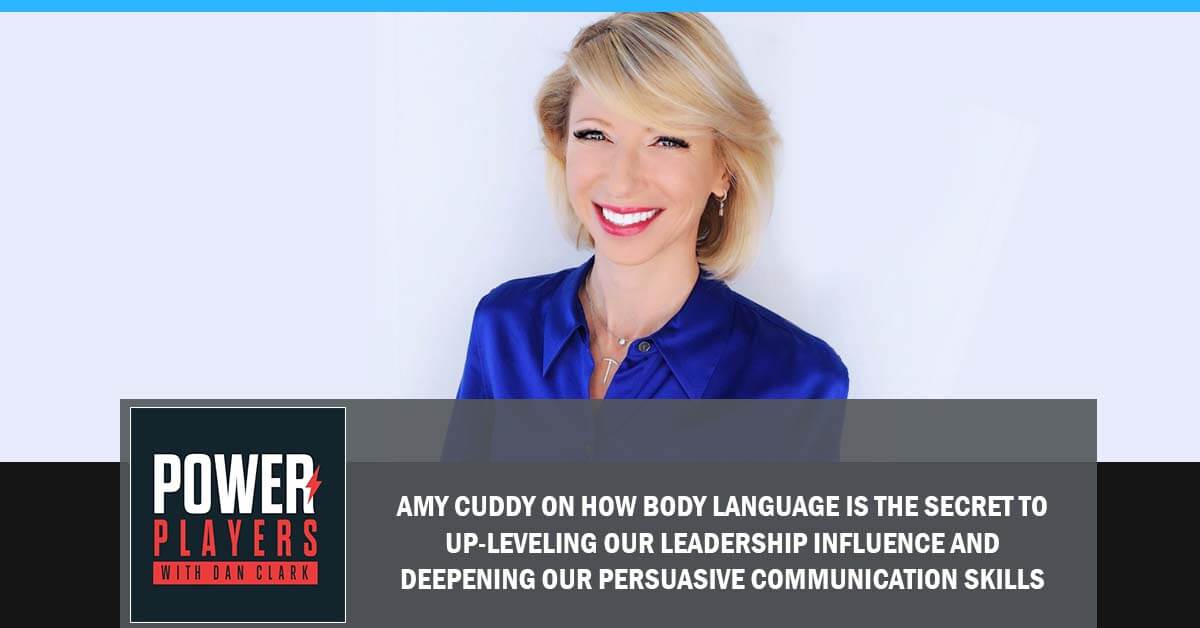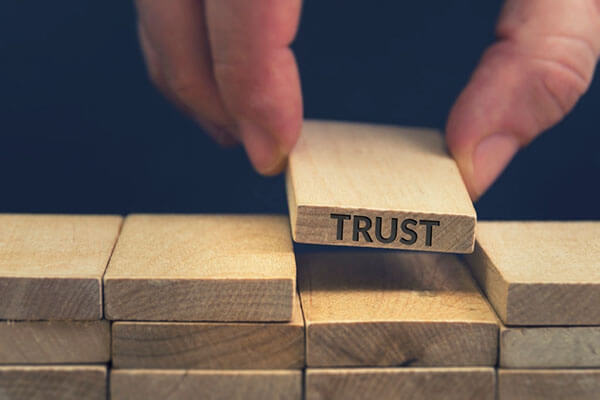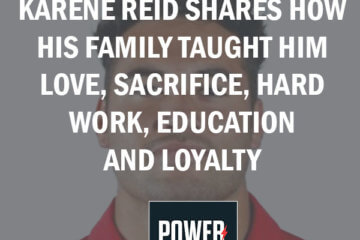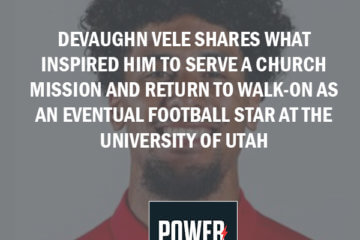Listen to the Podcast Here:

Claim your power. In this episode, Amy Cuddy shares her life and climb to the top of her profession – giving us an inside glimpse of why and how understanding body language is the secret to up-leveling our leadership influence and deepening our persuasive communication skills! Amy’s TED Talk is the second most viewed Talk in history, generating over 57 million views. Having gone through a car accident that caused her brain damage, she transformed her life for the better. So listen and be inspired, be a better, stronger you!
—
Amy Cuddy On How Body Language Is The Secret To Up-Leveling Our Leadership Influence And Deepening Our Persuasive Communication Skills
In this episode, Amy Cuddy, whose TED Talk is the second-most viewed talk in history, generating over 57 million views, shares her life and climb to the top of her profession, giving us an inside glimpse on why and how understanding body language and body image is the secret to upleveling our leadership influence and deepening our persuasive communication skills.
—
Welcome to the show, Dr. Amy Cuddy. It is such an honor to have you with us.
Thank you so much for having me, Dan. It seems like a perfect fit. We like peace and talking about power. This is a great fit. I’m honored to be here. It’s nice to have conversations during quarantine.
The irony of this whole thing is you are an expert in nonverbal communication. To prepare for this, I have changed my posture. I did the superwoman pose for two minutes. I’m fired up to talk to you. I faked it until I became it. I want you to dive into that and get right into it. The first P is Passion. The question that is on everyone’s minds, especially those who have watched your 21-minute TED Talk is, how in the world did you drill deep enough to find your passion for studying and becoming the world’s foremost expert on body language and the effects that it has on ourselves and the perception of others?
For me, I was in a very serious car accident when I was nineteen out in Wyoming. I was going to the University of Colorado and driving home from visiting students in Montana. We crashed in the middle of the night. My friend fell asleep driving. I was thrown out of the car and sustained a serious head injury. I was withdrawn from the college. It was substantial. I was told that I probably would not finish college. It was not a future that I had ever imagined as a possibility. If you imagine a range of futures, that was not one that I had imagined.
I’m pretty stubborn. If you tell me I’m not going to finish college, I’m definitely going to be finishing college one way or another. The part of my identity that had to do with my cognitive abilities was more core to who I was than I had thought it was before the accident. I worked incredibly hard to relearn to learn because I didn’t learn in the same passive ways. It wasn’t as easy as it was before the car accident.
Do not take that for granted when you have a great day for writing and thinking really clearly.
I had to learn how to write notes down in class, process the spoken information, and become a more active learner. That took four years. I graduated four years after my high school classmates were graduating from college. You know it from some of the other people you have talked to like Amy Purdy. Sometimes setbacks like that, as devastating as they are, can lead you to find a new and better version of yourself. That’s what happened. I had to break up with my old self to find my new self.
You are a body language and non-verbal expert. We are going to dive into that. Correct me if I’m wrong. Where your transformation started and sustained itself was the mind first because you had to create a new identity. You identified yourself as someone who is smart. People who identify themselves as an intellectual, you find them in libraries and continuous education. Someone who identifies themselves as an athlete, you find them in the gym and trying to work on their physicalness. People who identify themselves as models would spend 75 hours a day in front of a mirror.
What you are saying is that you grew up being very smart. Your physical experience with this car accident made it more difficult because someone came into your life and reminded you that you still are that core smart and intellectual seeker of knowledge. It allowed you to sustain enough physical therapy to get back into believing that is who you are. I hope I made sense. I want you to talk about the mind side first before we get into the body can change the mind.
It’s funny because I was in the gifted program as a kid. I knew I was smart but I wasn’t in the library all the time. I was very social. I worked my way through college as a roller-skating waitress. I was a professional ballet dancer. I did all of these physical things as well. If I had not had that accident and lost at least temporarily that cognitive ability, I might not have ever become a professor at Harvard.
Amy Purdy, she and I are good friends and talk a lot. She always says, “If I hadn’t lost my legs, I probably would not have become a professional snowboarder.” It made it clear to me that being physically fit and mastering physicality is important to her. The same thing happened to me that it was losing that ability that made me focus on that ability on recovering it and never ever taking it for granted.
I don’t take for granted when I have a day that’s filled with revelations and clear thoughts. My husband is an athlete, bicyclist and runner. When he has a great day running or cycling, he feels great. I feel like when I have a great day writing and thinking clearly, I do not take that for granted. When I lost that thing, I valued that thing more. That’s how humans work.

Body Language: Social power is your power in an organization or your wealth. It’s your power over other people. Personal power is more about your agency, true confidence, and ability to bring forth your best self.
Pain is a signal to grow. Once we learn the lesson that pain teaches us, the pain goes away. Is that one of your underlying mantras? I was paralyzed playing football. As I recovered, it clearly became one of the best things that happened. The accident was the best thing but who I became like a man and what I learned as a result of the setback clearly made me who I am now. Is that what you are teaching us?
I don’t know if you feel the same way but I didn’t set out to do that. I set out to get back on track. It takes a while for you to realize that your struggle and journey are filled with empathy and wisdom for other people. It took me a while to realize that I had something to offer through my experiences with adversity. I don’t feel traumatized by the pain in the car accident.
It’s easy for me to talk about that. I do think it’s because I worked my way through that. I recovered as well as I could. I don’t have any resentment about it. I’m not sorry that it happened. How can I be? I have a life and family that I love. I do work that I love. How can I complain about anything that has happened to me?
We have been coming through this COVID so-called crisis, which is more of a pause and purge. It’s not a crisis. Crisis does not make or break the men or women. It reveals the true character within. I’m fascinated by how your TED Talk concludes because you said the people who can use your technology, research, and amazing revolutionary message the most are the ones with no resources, technology, status and power.
Let’s get to the second P, the Preparation. Teach us about what we can do to elevate ourselves coming out of this so-called COVID crisis so that we can respond to rapid change for the rest of our lives. As you point out, take control of our behavior through our minds and then change our minds through our behavior. Please dive into your research.
First, I want to say there’s a difference between social power, which is your power in an organization or your wealth. It’s your power over other people, and then there’s personal power. That’s more about your agency, true confidence, and ability to bring forth your best self. Social power is something that we have less control over than personal power. A lot of people are going to have lost some of their social power. People have lost jobs, wealth, and even roles in their organizations. I don’t want people to forget that they still can find access to their personal power, which is very different.
You are the self that you want it to be.
Social power is zero-sum. It’s finite. If one person has some, somebody else has less. Personal power is not. It’s infinite. Everybody can feel powerful. What we know is that psychologically, when people feel powerful, it activates what we call the approach mindset. People see the world not as a place that’s filled with threats but as a place that’s filled with opportunities. They see strangers not as potential predators but as potential allies and friends.
They think more creatively and openly. They are even more generous with other people because they are not in a scarcity mindset. What I want to tell people is that do not forget that you deserve to feel personally powerful. As beaten down as you feel may be systemically, you still have access to your personal power. We give away our personal power by allowing ourselves to collapse. That happens physically and psychologically.
Let me talk about the physical. Physically, when people feel powerless, they literally contract, make themselves smaller, and take up less space. That’s true for animals who are humans and animals who are not humans. When individuals have less power, they hide. They touch their faces and necks. They go into the fetal position and slouch. When people feel powerful, they do exactly the opposite. They expand and take up space. They breathe slowly and deeply. They even speak slowly. They are taking up more temporal space.
What is interesting about that is that when we feel powerful, we expand. When we feel powerless, we contract. What is so cool about what we now know about the body-mind connection is that it also works in reverse. If you are feeling powerless and your instinct is to collapse, do the opposite and expand. Stand with your feet apart and your hands on your hips or your arms in a victory pose. Walk around and take long strides. Sit upright and make sure that your posture is good.
All of those things are sending a signal to your nervous system that you are safe. When we go into that fetal position and allow ourselves to collapse, we are sending our nervous system the opposite message that we are not safe. I want to encourage everyone to be mindful of the physicality of power and powerlessness. When you are home feeling understandably lonely, depressed or scared, your instinct is going to collapse.
I want you to do everything you can to build into your daily routine ways to expand. If that is brushing your teeth with your hand on your hip, it’s great. If that means that you sit with your arms rested on the back of the couch instead of wrapped around your torso, it’s great. Find ways to do that because that is sending a signal to your brain and nervous system that you are okay, and that will help you.

Body Language: When people feel powerful, it activates the ‘approach mindset.’ People see the world not as a place that’s filled with threats but as a place that’s filled with opportunities.
The last P is Pursuing your passion. Let’s paint the picture which you have taught me. I have watched your TED Talk many times. It brought tears to my eyes the first two times. I played football for thirteen years. When I was paralyzed, I lost my identity. Everywhere I went, I believed what you believed in that, “I did not belong here.” Even when I had a chance to speak at Princeton University, I thought, “My cholesterol count is higher than my SAT scores. I’m a dumb football player. I don’t belong here.”
How many people reading this blog in the world have that notion at least once or twice or 10 or 15 times a day, where the idea is to think outside the box and leave our comfort zone? You are continuously pursuing your passion. Counsel us on how we can fake it, not just until we make it but as you say, “Fake it until we become it.” Please talk about that before we conclude our time. It has changed my whole life.
The idea of imposter syndrome, I now call it the imposter experience because the syndrome implies that it’s pathological, which means that it’s rare. It turns out it’s incredibly common. Eighty-five percent of people, including students at Harvard Business School, admit to feeling like imposters. They feel like a fraud. They feel like they are going to be found out. Somebody is going to tap them on the shoulder and say, “We made a mistake. You shouldn’t have been admitted or hired for this job.”
It’s not that we walk around feeling that way all the time or in all facets of our lives but we walk around feeling that way in some facets of our lives. The first thing I want to tell you is that you are not alone. If you have never felt that way, that’s what would be unusual. All of us feel that way at times. Often, we feel even more that way when we are being rewarded or acknowledged for things that we have done well.
It doesn’t surprise me that when you go and speak at Princeton, which is you being recognized, you feel more like an imposter. You feel like, “I don’t deserve this.” That brings up those feelings. The first thing to know is it’s common. The second thing to know is it’s okay that it keeps on coming up because you will learn to manage it. It’s like Whac-A-Mole. You have that game where you hit the moles as they pop up. It’s going to keep on popping up. You are going to keep on counting it down. You are going to get through it and that’s okay. The idea of faking it until you become it versus faking it until you make it is this.
The phrase, “Fake it until you make it,” to me, always meant to fool other people into believing that you deserve to be there, so then you get there. What do you do? You have convinced them that you deserve to be there but you feel like a fraud. The problem is not convincing other people. The problem is that you need to convince yourself that you deserve to be there. You need to fake your sense of deservingness and confidence until you become the best version of yourself.
The confidence, that feeling of power, will allow you to enlarge who you are and become a better, stronger, more virtuous version of who you are.
Confidence, that feeling of power, and all of those things are going to allow you to enlarge who you are to become a better, stronger, and more virtuous version of who you are. You are no longer faking it. When you get that job that you want, you do not have to continue to fake it. You now are the self that you wanted to be. It’s different. Faking it until you make it is about fooling other people. Faking it until you become it is about fooling yourself.
We have gone through this social distancing, which is a misnomer. We are social beings. We should have always called it physical distancing but it brings up something so profound. I have talked about it for years. We become the average of the five people we associate with the most. How does our choice of friends now that we have gone through these three Es? It’s this Evaluation, Elimination of negative friends and influences, and Elevation of who we want to be. As you said, it’s our ability to become the best version of ourselves. Talk about the significance of surrounding ourselves with people who allow and encourage us to fake it until we become it.
I’m thinking about who those people are in my life and how that changes as you get older and also as you experience adversity. There are two kinds of people in my life. Some are people who need my help. Everyone likes to help. Helping others makes us feel closer, connected, and good about what we are doing. I don’t feel that everybody around me necessarily needs to be my cheerleader all the time. I want to be their cheerleader some of the time.
There are always people in my life who are struggling. I want to be able to be the person who is there to help them, not right after the crisis but six months after the crisis when nobody remembers that something bad happened to them. I have people like that in my life but I also have people who inspire me and who I feel happy for when they succeed.
I truly believe that when other people in your field who you like and respect are doing well, you should not feel that you are losing anything. You should feel happy for them. You should check in with those feelings of envy or jealousy that you might be having and ask yourself, “What is that about? What can I change in myself to fix that?”
Also, know that if you admire them and they are doing well in sharing the message that you value, you should be happy that they are sharing that message and that people are listening to it. I like to be around people who can be happy about my successes. I can be happy about their successes. They will allow me to help them without it feeling like an exchange relationship. It feels like a communal relationship, not an exchange relationship. Being able to help matters.

Body Language: Trust is the conduit of influence. It’s the medium through which ideas are exchanged and travel.
If you put a healthy child in the same room with a sick child, most of the time, you end up with two sick children. If you put a hard-to-catch horse in the same field with an easy-to-catch horse, most of the time, you end up with two hard-to-catch horses. As we are distancing ourselves from maybe negative influences in our lives, cleansing our own personal minds, and overcoming our doubts, I want to put you on the hot seat as I have done with every one of my guests.
I referred to Professor Randy Pausch, who coined the speech titled Last Lecture. I have taught public speaking at the MBA level for ten years at different universities. My final examination with my students is always this. If you had one day to live and one consolidated message to the world, Ms. Amy Cuddy, what would it be?
It would be to build trust before you try to flash your strength. When you meet new people, and you are forming relationships, the most important thing you can do is to build trust. We cannot hear each other without that. Trust is the conduit of influence. It’s the medium through which ideas are exchanged and travel. We often make the mistake of wanting people to see us as the smartest guy in the room. We do that at the expense of connecting with people and building trust with them.
As an author and award-winning Harvard lecturer, do you have a new book that you have been working on? Do you want to tell everybody about it? Tell us how we can join your tribe and the guys watching your amazing TED Talk. I want people to be able to reap the benefits of having you in their lives.
I’m working on two books. The book that came out first is called When They Trust You, They Hear You: A Modern Guide for Speaking to Any Audience. It’s my take on public speaking. I wrote a public speaking book that was based on my award-winning Harvard course. If you want to know what I’m teaching to the Harvard students that move their ability to connect with people in a matter of months, this book will do that for you. That came out in early 2021.
The second book that I’m working on is a bigger project. It’s called Bullies, Bystanders and Brave Hearts. It’s about the psychology of adult bullying and adult social bravery. It’s sticking your neck out and doing the right thing, even when you know that you might be kicked out of the tribe for doing it. What is going on? Why do we see all this bullying? Why are so many bystanders doing nothing? It examines deeply what is happening and how we can get on that road to bravery for ourselves and modeling that for our kids.
Build trust before you try to flash your strength.
Where to find me? My book presence is out in every format. You can find that anywhere. You will find that a useful and inspiring read. I’m an influencer on LinkedIn. I have a lot of activity there. I have a newsletter there. You are not signing up for tons of emails. It’s called Communicate with Impact. It’s on public speaking and what I call public writing. I’m on Twitter. I’m easy to find on social media. Connect with me there. I will keep you posted on what I’m up to.
I can’t wait to get an autograph copy of a couple of these books. You are everything that Ms. Purdy said you would be. As cheesy as it sounds, I have fought back some emotion because I resonate with losing my identity and having to reinvent myself. Your message has clarified many things in my life, even after the fact because I was paralyzed long ago. I have fully recovered now. I have allowed and invited you into my life to take it to the next level.
I will conclude as I always do. My friends, when you finally decide to be a Power Player, your power play begins in you. Until next time, as my guest, Amy Cuddy has so eloquently challenged us to remember, quantify your takeaway and go make a Power Play. Thanks for joining me, Amy. I love and honor you. We appreciate your influence in the world.
Thank you so much for having me. This was a great conversation.
Important Links:
- Amy Cuddy
- TED Talk – Your body language may shape who you are
- Amy Purdy – Previous episode
- Last Lecture – YouTube
- When They Trust You, They Hear You: A Modern Guide for Speaking to Any Audience
- LinkedIn – Amy Cuddy
- Communicate with Impact – LinkedIn
- Twitter – Amy Cuddy
About Amy Cuddy
 Dr. Amy Cuddy is a social psychologist, bestselling author, award-winning Harvard lecturer, and expert on the behavioral science of power, presence, and prejudice. Cuddy earned her Ph.D. from Princeton University in 2005 and was a professor at Harvard Business School from 2008 to 2017, Northwestern University’s Kellogg School of Management from 2006 to 2008, and Rutgers University from 2005 to 2006. She continues to teach at Harvard Business School in executive education. HONORS AND AWARDS 100 Women of 2017, BBC Game Changer, Time 50 Women Who Are Changing the World, Business Insider World’s Top 50 Management Thinkers, Thinkers50 Top 50 Leadership Innovators Changing How We Lead, Inc. Top 5 HR Thinkers, HR Magazine 100 Science Stars on Twitter, Science Ten Bostonians Who are Upending the Way We Live, Lead, and Learn, Boston Magazine Rising Star, Association for Psychological Science Early Career Award, Society for the Psychological Study of Social Issues Harvard Excellence in Teaching Award, Harvard University Young Global Leader, World Economic Forum.
Dr. Amy Cuddy is a social psychologist, bestselling author, award-winning Harvard lecturer, and expert on the behavioral science of power, presence, and prejudice. Cuddy earned her Ph.D. from Princeton University in 2005 and was a professor at Harvard Business School from 2008 to 2017, Northwestern University’s Kellogg School of Management from 2006 to 2008, and Rutgers University from 2005 to 2006. She continues to teach at Harvard Business School in executive education. HONORS AND AWARDS 100 Women of 2017, BBC Game Changer, Time 50 Women Who Are Changing the World, Business Insider World’s Top 50 Management Thinkers, Thinkers50 Top 50 Leadership Innovators Changing How We Lead, Inc. Top 5 HR Thinkers, HR Magazine 100 Science Stars on Twitter, Science Ten Bostonians Who are Upending the Way We Live, Lead, and Learn, Boston Magazine Rising Star, Association for Psychological Science Early Career Award, Society for the Psychological Study of Social Issues Harvard Excellence in Teaching Award, Harvard University Young Global Leader, World Economic Forum.


